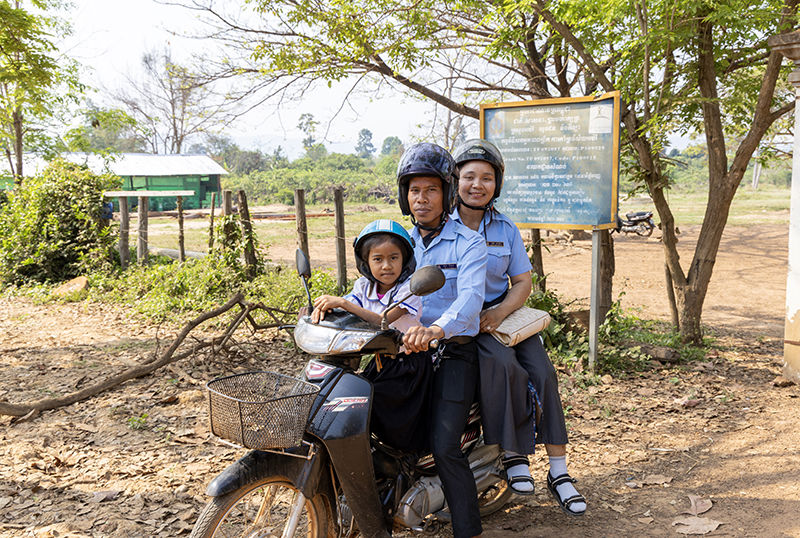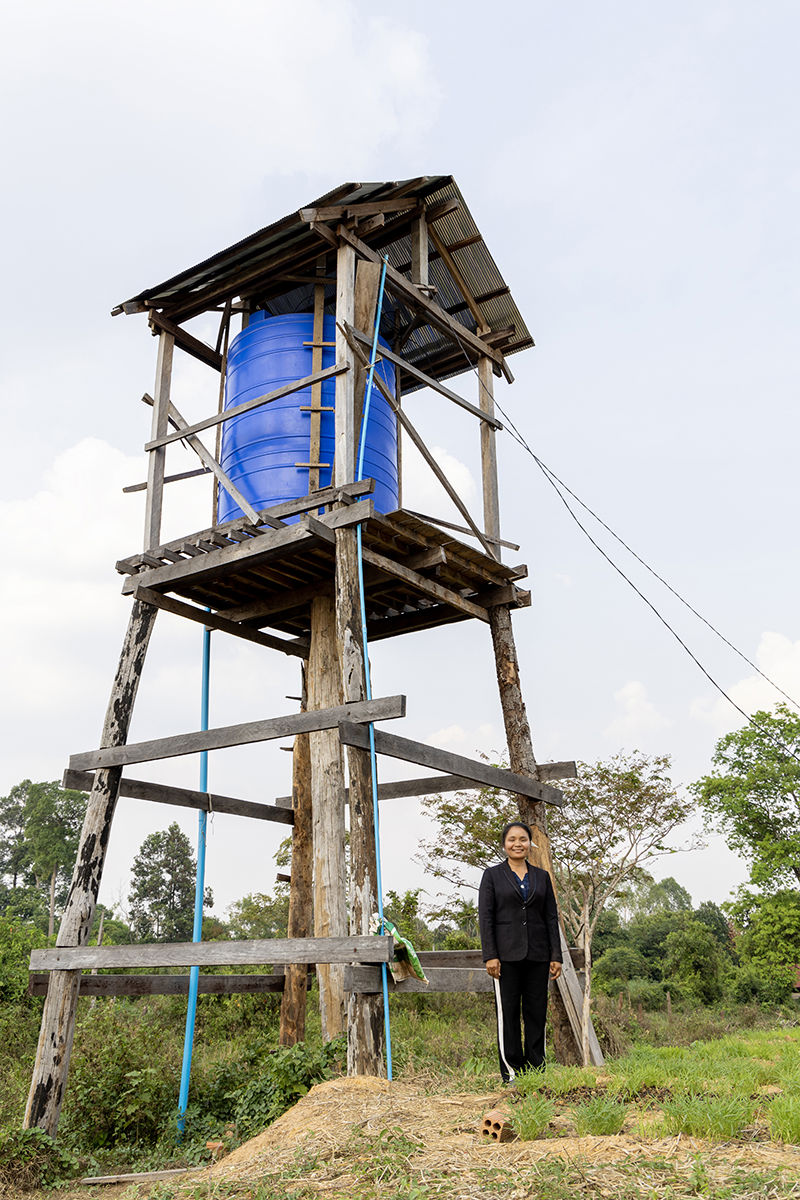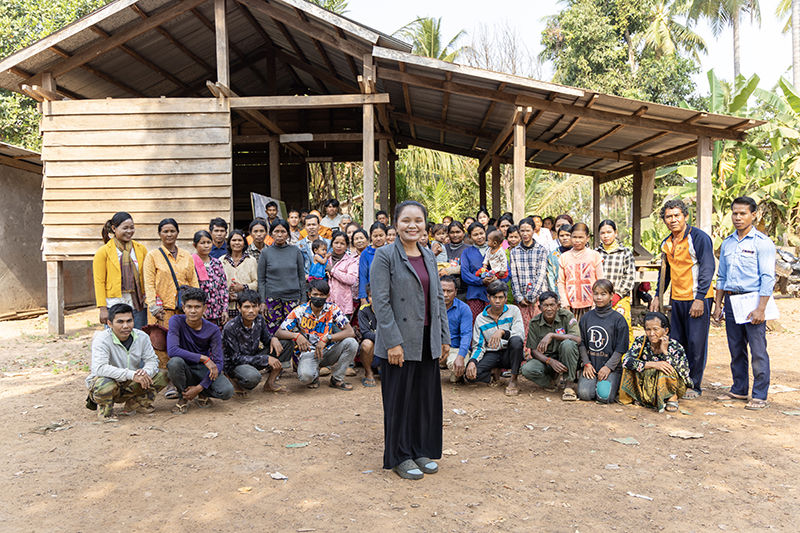How clean water transformed this school in Cambodia
29 May 23
Earlier this year, I travelled to Cambodia to see the impact of a clean water project in a rural community in the Siem Reap province.
It was a blisteringly hot day when I landed at Siem Reap International Airport. One of the first things I did on arrival was to buy a bottle of water to quench my thirst.
But for many people living in rural Cambodia, bottled water is a luxury they simply cannot afford. Many families face a heartbreaking choice: spend a significant portion of their income to transport clean water into their village, or drink dirty, and potentially contaminated water, and risk getting sick.
On my first day in Cambodia, I met Salin, a principal of a primary school in a village in the Siem Reap province. Every morning, Salin would ride a motorbike with her husband, Vibol, and daughter, Neth, to school. Vibol is a school librarian, but he also works as a farmer to earn additional income to support his family.

The school was brimming with energy and life when we arrived, with the sound of singing and laughter echoing across the classrooms.
But it wasn’t always like this. Salin shared with me how students would miss school regularly due to preventable waterborne diseases. They also had no clean water at school, so students had to bring their own water to class.
All of this changed when Salin and her community built a water station.
With the support of our local partner HURREDO, and through the donations of generous people like you, Salin and her community worked together to construct a water station behind the school, along with a community pond. During the rainy season, the pond collects rainwater which is connected to the water station. The water station can then distribute water to the school and various households in the village, particularly during the dry season when there is minimal rainfall.

The project was entirely community-led, and people in Salin’s village insisted on building the water station themselves so that they know what to do if the system malfunctioned.
During my visit, many of the students ran to the water taps during their recess break. They were very excited to show me how they wash their hands using water and soap.

I also spoke to a 14-year-old student called Amey. During her break time, Amey would water the plants that she grows at school. She always cleans her hands during my break times and after using the bathroom. She would also take water from the school back to her family to use.

The improved hygiene in the school community is something that Salin is extremely proud of.
Salin said to me that she is so happy to see students have enough water to use and attend classes regularly. “Nothing is better than having water to use,” she said.
The water station has made a life-changing difference to the students and teachers. School attendance is higher than before and there are fewer absentees because of waterborne illness.
It is not just her school students who are benefitting from the water station. Salin was recently elected the chairperson of her community’s water station committee. In her role, she helps lead her community to expand the water station access to the most vulnerable households. The goal is for everyone in her village to eventually have access to clean water.

There are many stereotypes about poverty – that people are poor because of personal choice, or that families will always be trapped in a cycle of poverty for generations.
What I saw in Camboda is that people like Salin already have the solutions. They have the determination and drive to change their lives and overcome poverty. By using their local knowledge, they can forge a path out of poverty. All they need is support from generous people like you to help kickstart their initiatives.
This End of Financial Year, you can help make a life-changing impact. Your donation today won’t just help one person – it can empower and transform an entire community.
If you want to learn more about the impact of clean water, sign up to this Mission in Action online seminar and hear from our partners in Cambodia about how your support is helping transform lives. Mission in Action is a special series of seminars for supporters of Caritas Australia, and anyone interested, to hear about our overseas humanitarian work and development programs.
- Tim Lam is the Content Marketing Manager at Caritas Australia